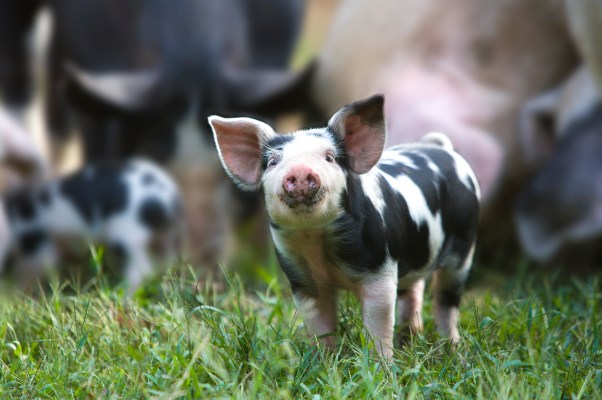Pig organs are the same size as human organs and function pretty much the same way, but pig to human transplantation has long been an elusive goal for researchers due to fear of activating dormant viral diseases in the pig’s cells.
But there’s hope on the horizon, thanks to a new study out in Science today involving CRISPR’d piglets. Researchers in the study used the gene-editing technology to effectively cut out a porcine endogenous retrovirus (PERV) commonly found throughout pig bodies.
The findings represent an important breakthrough in the potential for xenotransplantation, or the use of animal organs in humans. Currently there are more than 117,000 men, women and children on the donor waiting list in the U.S., 22 of whom die each day from lack of a matching donor. The ability to use a pig heart, lungs or other body parts could shore up the shortage and save numerous lives.
This is the first time researchers have been able to demonstrate they were able to inactivate PERV and open the way for xenotransplantation without cross-species contamination.
The company behind the study, eGenesis, which was founded by Harvard genome godfather George Church and Luhan Yang, says it used a technique involving a combination of CRISPR and a method preventing primary cell death during the editing process to inactivate all 62 copies of PERV in piglet embryos. Those embryos were then implanted in sows, growing to fully formed piglets, free of PERV.
CRISPR holds enormous potential to wipe out diseases in both humans and animals, upend our food system and has many other applications we likely don’t see yet. Just last week, U.S. scientists were able to demonstrate they could successfully CRISPR out a faulty heart gene mutation in human embryos. However, there is still a lot to take into account before applying the technology to fully formed human beings.
eGenesis says it will continue to monitor the piglets for any long-term effects and, according to Yang, will also “further engineer the PERV-free pig strain to deliver safe and effective xenotransplantation.”
